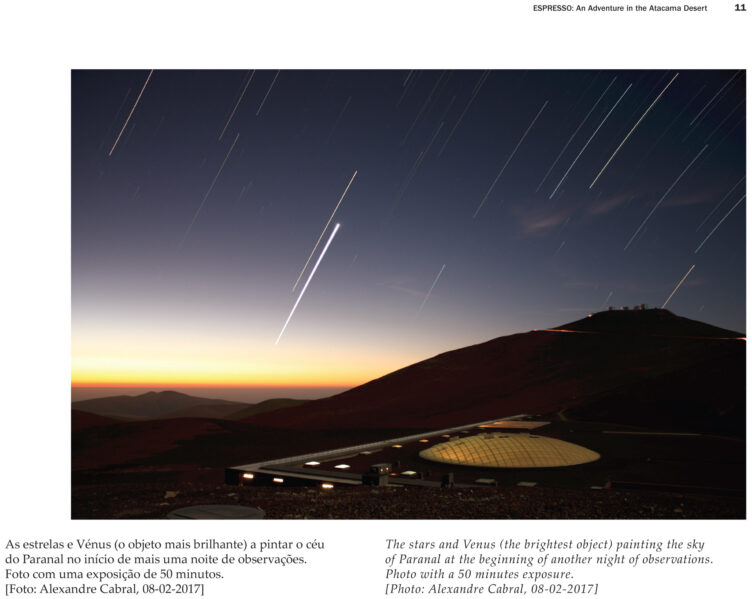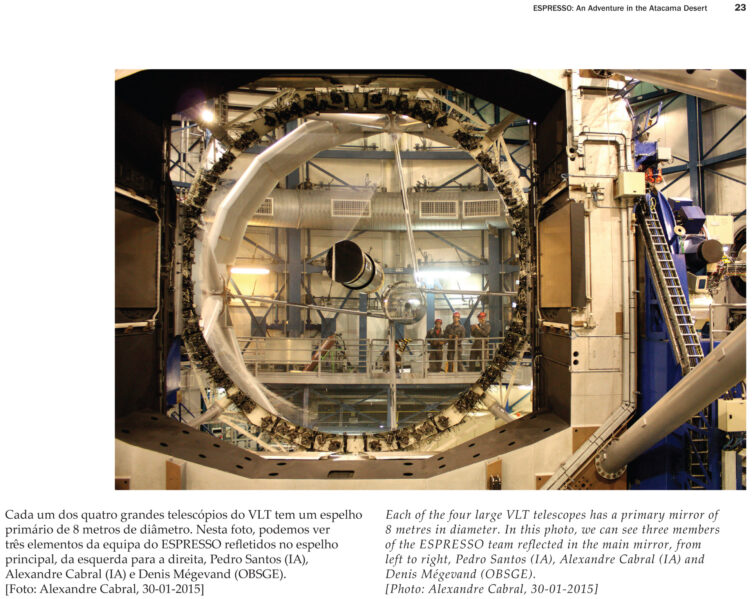The book with the photographic account of a technological and human adventure, moved by the desire to find other “Earths” in the Universe.
by Alexandre Cabral and Nuno Cardoso Santos
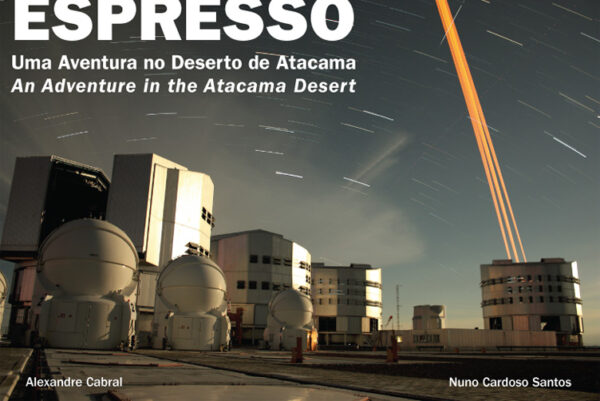 Languages: Portuguese and English
Languages: Portuguese and English
Number of pages: 58
Size: 25 x 17,5 cm
Edition: 2021, Centro de Investigação em Astronomia/Astrofísica da Universidade do Porto
ISBN: 978-972-98162-2-2
Funding: Fundação para a Ciência e a Tecnologia, I.P., and COMPETE2020
Support: Instituto de Astrofísica e Ciências do Espaço, and Portuguese Space Agency
Free edition.
Summary
In the last 30 years we have discovered that nearly all the stars we see in the sky at night have planets around them. Most of these should be rocky, like Earth. With scientific ambition and technological ingenuity, Portuguese scientists and engineers are among the pioneers in the journey of discovery of other worlds.
Two of these pioneers offer in this book the account of part of this journey, in photographs and memories created in the World’s driest desert, in Chile. Learn in these pages the technological and human adventure of building ESPRESSO, a journey moved by the desire to find, and one day maybe get to, other “Earths” in the Universe.
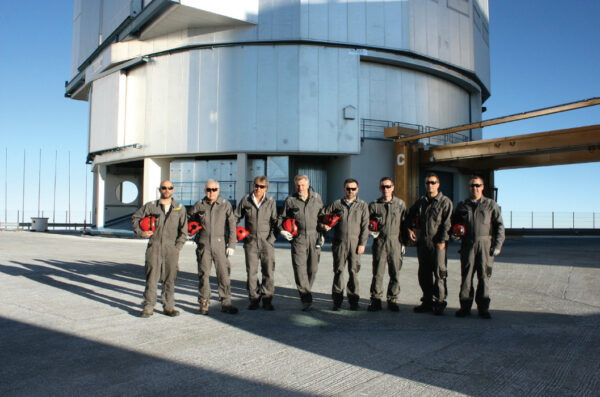
In 2009, the European organizations that manages some of the biggest telescopes in the world, the European Souther Observatory (ESO), launched a challenge to the scientific community: to develop an instrument capable of detecting and studying other “Earths”, orbiting other suns, at the distance of light-years.
A group of international institutions, including the Instituto de Astrofísica e Ciências do Espaço (IA), responded and proposed the construction of a revolutionary instrument: the ESPRESSO. This instrument, technically named spectrograph, enables the analysis of the light of distant stars, and in this light allows astronomers to unveil the tiny signs of planets orbiting them, planets as small as our own.
For nearly 10 years, the national team designed, tested, built and assembled some of the key-components of the ESPRESSO, and it is the summit of this journey, its installation at the Paranal mountain, in the Atacama desert, that is documented in this book.
After its first light in 2018, what it the best spectrograph in the world as so far gathered a numbered of surprising results. But that is only the beginning of a new adventure.
If you have any question, or wish to be informed about when and how it will be possible to get physical copies of the book, please contact us at
The Authors
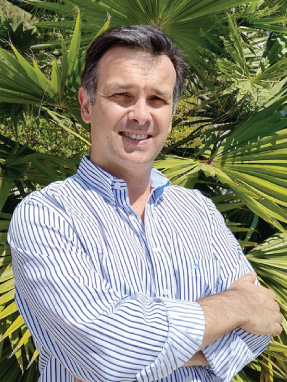
Alexandre Cabral is Assistant Researcher in the Physics Department of the Faculty of Sciences of the University
of Lisbon. He is also a researcher at the Institute of Astrophysics and Space Sciences, where he currently leads the Instrumentation Group. He was responsible for the instrumentation component in the construction, testing, and integration of ESPRESSO, having, between February 2011 and February 2018, spent 268 days during 17 missions to the Paranal Observatory in the Atacama Desert, northern Chile. |
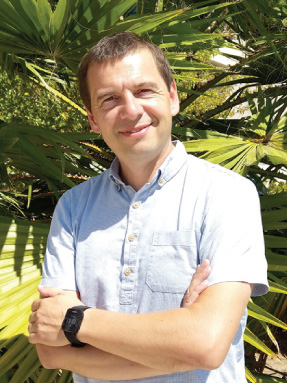
Nuno Cardoso Santos is a researcher at the Institute of Astrophysics and Space Sciences, and an Assistant Professor at the Department of Physics and Astronomy of the Faculty of Sciences of the
University of Porto. He is the researcher responsible in Portugal for the ESPRESSO project. In 2004, he was the first author of the article that announced the discovery of the first likely rocky planet orbiting another star. In 2009, he was awarded a Starting Grant by the European Research Council (ERC), which allowed him to create a team of researchers, now with 25 members, to work on the research of extrasolar planets. In 2022, the same European council ERC awarded to Nuno C. Santos an Advanced Grant to develop data analysis methods that will enable the detection and study of other Earths. |

